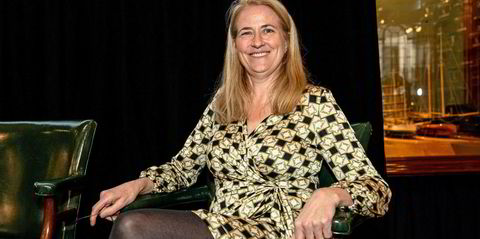Are shipping contracts key to unlocking near-term greenhouse gas emission cuts in shipping?
In a bonus episode, the Green Seas podcast explores how long-held commercial structures like voyage charter and time charter contracts contain features that can get in the way of reducing fuel consumption and emissions.
Nautilus Labs chief executive Matt Heider, whose New York-based technology contract provides vessel and voyage optimisation for both charterers and shipowners, explained how his company has encountered barriers to efficiency in the form of the underlying commercial frameworks in the industry.

“It’s hard to build a maximally efficient building on a very shaky foundation,” he said as the company unveiled its Green Charter aiming to tackle the problem.
Those barriers include voyage contracts whose demurrage fees incentivise shipowners to “hurry up and wait” and time-charter contracts in which owners do not pay for fuel and do not share in the benefits of efficiency.
And then there are clauses that call for manual data collection, rather than using digital tools.
“So when you think about the commercial landscape, and where the inefficiency is baked in, I think the very first thing that has to change is the sharing of information,” Heider said.
The episode also includes comments from Altera Infrastructure chief executive Ingvild Saether, Wallenius Wilhelmsen chief executive Lasse Kristoffersen and Copenhagen Commercial Platform chief executive Christian Bonfils.
Listen in the player above, or on Google Podcasts, Apple Podcasts, Stitcher, Pandora, Spotify or Soundcloud.
Read more
- Cargill’s Dieleman on methanol fuelling piggybackers: ‘That’s exactly what we wanted’
- Sea Cargo Charter calls for action as report shows shipping’s climate alignment stuck in neutral
- Cargill Ocean reports carbon dip driven by ‘more sluggish economic environment’
- Viewpoint: Why ammonia will accelerate autonomy, usher in a new safety era and reshape shipping
- Podcast: Ocean industries limber up for the burgeoning carbon capture and storage opportunity



